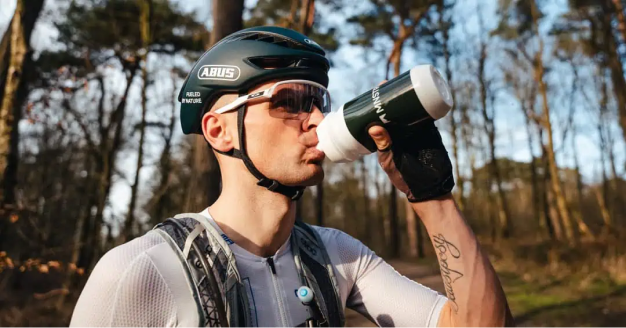Your Nutrition Plan for the Ötztaler Cycle Marathon ("Ötzi")
Get it now for free

MNSTRY Agriculture Center Uganda
Discover our unique project that is changing the lives of an entire region

Deforestation, climate change, poverty
Situation in Uganda
The population explosion and the resulting search for settlements & farmland have placed massive pressure on the environment. Tree felling has led to a drastic reduction in forest cover - 50% in the last 3 decades.
Due to the geographical and climatic conditions, the residents of eastern Uganda live in great poverty. Not least because harvests are becoming increasingly unreliable, which is a consequence of climate change.
Through an employee's foundation, we decided to start a unique project in eastern Uganda that is changing the lives of an entire region: MNSTRY Agriculture Center!

partnership initiatives
Vision
We would like to support the creation of environmentally friendly and ecologically sustainable agriculture: for the benefit of the people in Uganda - and for the sake of our common earth.
We believe that active initiatives deepen understanding of how to use available natural resources such as water and soil sustainably.
We believe active community engagement promotes productivity and environmental protection - and preserves nature for future generations.
We believe that active community participation in activities such as tree planting will increase community ownership and make it self-sustainable - in contrast to highly interventionist approaches

together with the residents
Activities
With the help of agricultural experts from the region, we want to support communities in becoming self-sufficient - in a sustainable way.
- Every year we want to work with the residents to plant 50,000 trees in the local forest of Kabuna.
- Every year we want to provide 50,000 meals for extremely poor people using our own best practice fields.
- We want to actively involve over 1,000 farmers and 20,000 students in these best practice fields to promote sustainable agriculture.

climate stabilization, better livelihoods
Effects
The project will improve the
livelihoods and resilience to it
contribute to climate change
- Climate stabilization and reducing the impact of climate change on livelihoods in terms of water, soil fertility conservation and energy production.
- Increased tree cover, reduced air, soil & water pollution and reduced flooding.
- More wind barriers, reducing soil erosion and destruction of crops and property by wind.
- Improved livelihood through the sale of wood products
- Reducing the energy costs of cooking by encouraging the planting of trees that can provide firewood.
- More agricultural yields & improved livelihoods for the extremely poor through harvesting on the MNSTRY fields

the second poorest region in Uganda
Project location
The program is implemented in Eastern Uganda, Budaka District.
It is the second poorest region in the country with underdeveloped agricultural practices and low levels of education.
The focus of this project is on local communities, religious institutions of all faiths and schools.
Farmers in these communities make up over 75% of the region's population, with over 77% of this population being young people under the age of 30 and around 60% being women.



